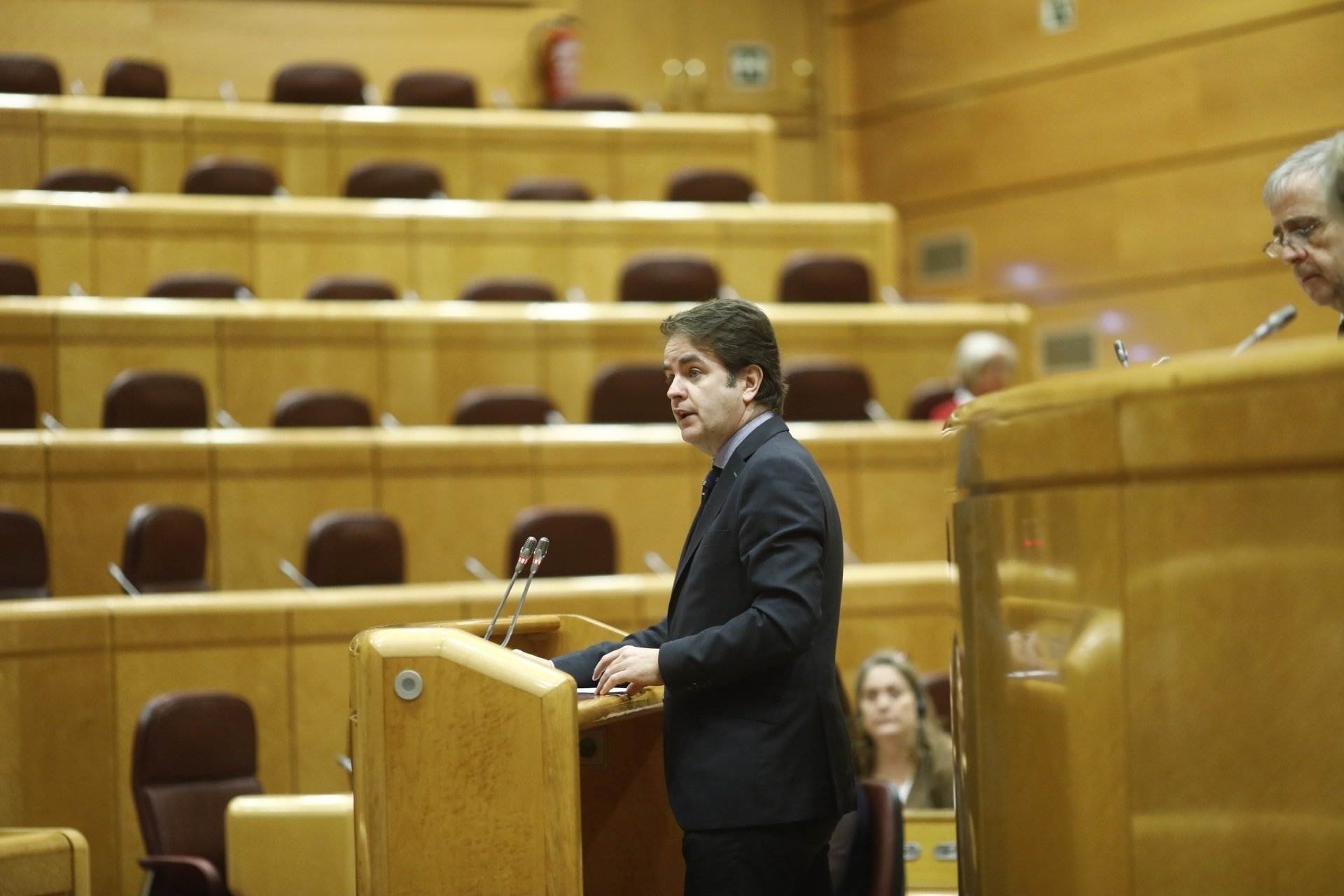During this Thursday's investiture session for Jorge Azcón, the new People's Party (PP) president of Aragón, the junior partner in the new executive, Vox, made it clear that "Catalan is not spoken in Aragon" and announced that one of the first measures to be taken will be to abolish the government's General Directorate of Linguistic Policy. But just in case it was not clear what the line of this new government will be, Azcón has appointed, as his new finance minister, Roberto Bermúdez de Castro, known in Catalonia as the executor of Article 155 in 2017 and 2018 - that is, to say, the person responsible for enforcing the Spanish government's direct rule over Catalonia after Mariano Rajoy sacked the Catalan government in October 2017. In addition, the far-right politician Alejandro Nolasco, author of the mentioned statement against the Catalan language and of a book that romanticizes the World War II story of Spain's Nazi-supporting Blue Division, will be vice-president and minister for territorial development and justice.
Bermúdez de Castro's return to politics after Article 155
In November 2016, Bermúdez de Castro was appointed as undersecretary for territorial administrations, a body that depended on the presidency ministry under Mariano Rajoy's number two Soraya Sáenz de Santamaría, intended to manage relations with the autonomous communities and administrations. At a time of great tension between Catalonia and the state, far from reducing it, this Aragonese politician demanded in a letter to Catalan mayors that they refuse to allow the 2017 independence referendum to be held. In fact, Bermúdez de Castro affirmed that the consultation on independence would be stopped, which did not transpire, but following the never-implemented declaration of independence on October 27th, 2017, Bermúdez de Castro was put in charge of making a reality of Article 155, the section of the Spanish Constitution under which the PP administration in Madrid took control of the Catalan institutions. He also defended the police action on October 1st and was particularly critical of the public media in Catalonia, which he went so far as to call "shameful".
Seven months later, when the period of direct rule was ended after Quim Torra was able to form a new Catalan government, Bermúdez de Castro decided to leave politics and go into private business. Until now, five years later, when a new PP president in Aragon has invited him to return. Thus, he will repeat as a minister in Aragon, a position he already held between 2011 and 2015 under the presidency of Luisa Fernanda Rudi. In that period he had been in charge of the presidency and justice areas, and in the new executive, which will take office this Saturday, he will be regional minister for finance and public administration.
Alejandro Nolasco, the nostalgic far-right vice president
The second most important figure in the new government of Aragón will be Alejandro Nolasco, a member of Vox, who will hold the first vice-presidency as well as the portfolios of territorial development, depopulation and justice. Azcón defined him this Thursday as a man who is "young but prepared, and with great intellectual inquisitiveness", and thanked him personally for his willingness to dialogue during the negotiations and for contributing to a more "moderate" discourse in politics. However, the postulates that Nolasco defends are far from being moderate.
Born in Pamplona, he studied law, philosophy and history, and has been living in Teruel for six years. He has written six books, mostly fiction, but one of them, Los últimos 50 de la División Azul, is a compilation of the testimony of fighters from this army of Spanish volunteers who joined Hitler's German troops to fight against the Soviets during World War II. In the synopsis of the book, Nolasco defines this war as a struggle in which people fought for "romantic reasons" and claims the period as a time when "you had nothing if you didn't have convictions" and when the only things important were concepts like "love of country, nation and commitment". It is not surprising that one of Nolasco's first goals as he comes to power is to repeal the historical memory law.

